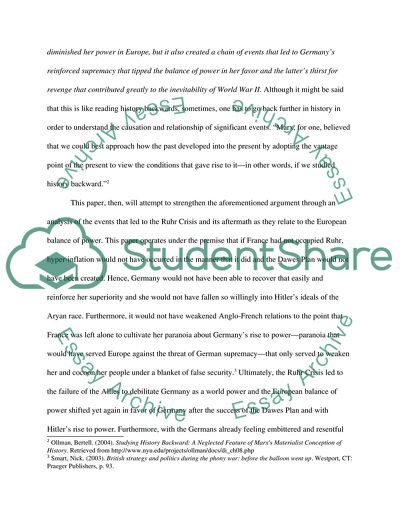Cite this document
(“Contextualizing the Effects of the Ruhr Crisis on the Second World War Essay”, n.d.)
Contextualizing the Effects of the Ruhr Crisis on the Second World War Essay. Retrieved from https://studentshare.org/history/1562494-contextualizing-the-effects-of-the-ruhr-crisis-on-the-second-world-war
Contextualizing the Effects of the Ruhr Crisis on the Second World War Essay. Retrieved from https://studentshare.org/history/1562494-contextualizing-the-effects-of-the-ruhr-crisis-on-the-second-world-war
(Contextualizing the Effects of the Ruhr Crisis on the Second World War Essay)
Contextualizing the Effects of the Ruhr Crisis on the Second World War Essay. https://studentshare.org/history/1562494-contextualizing-the-effects-of-the-ruhr-crisis-on-the-second-world-war.
Contextualizing the Effects of the Ruhr Crisis on the Second World War Essay. https://studentshare.org/history/1562494-contextualizing-the-effects-of-the-ruhr-crisis-on-the-second-world-war.
“Contextualizing the Effects of the Ruhr Crisis on the Second World War Essay”, n.d. https://studentshare.org/history/1562494-contextualizing-the-effects-of-the-ruhr-crisis-on-the-second-world-war.


